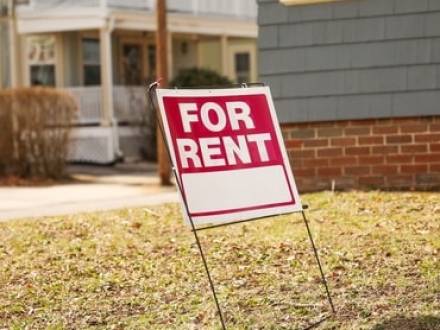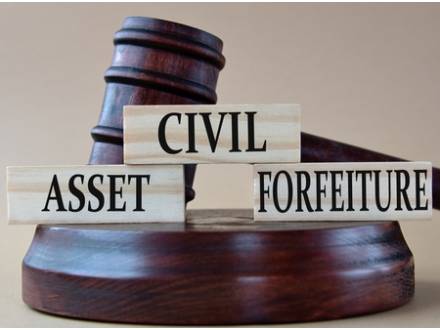Recent Blog Posts
What Happens in an Out-of-State Illinois DUI Arrest?
 Traveling to another state can be exciting and interesting as you see new things and perhaps meet new people. Getting arrested for DUI in another state can spoil your vacation or business trip and is just about as messy a situation as you might imagine. If you were arrested in Illinois and charged with DUI, you are likely wondering whether you will have to come back to the state for a trial, what the penalties will be, and whether it will show up on your record in your home state.
Traveling to another state can be exciting and interesting as you see new things and perhaps meet new people. Getting arrested for DUI in another state can spoil your vacation or business trip and is just about as messy a situation as you might imagine. If you were arrested in Illinois and charged with DUI, you are likely wondering whether you will have to come back to the state for a trial, what the penalties will be, and whether it will show up on your record in your home state.
Regardless of whether you are a resident of Illinois, the state takes DUI charges seriously, and the consequences can be significant. You are right to be worried. However, the best thing you can do right now is to speak to a highly experienced Naperville, IL DUI lawyer who can provide you with information about how this will affect your driving privileges in your home state and handle your DUI in Illinois.
Advice for Landlords Regarding Tenant Evictions in 2025
 The most common reason that landlords in DuPage and Cook Counties go to eviction court is because of non-paying tenants. When a tenant falls behind on his or her rent and has no way of catching up, the balance of back rent can become significant. Unfortunately, the longer a landlord waits, the harder it may become to legally evict tenants. The average landlord waits until a tenant is at least three months behind and owes approximately $5,000 in back rent.
The most common reason that landlords in DuPage and Cook Counties go to eviction court is because of non-paying tenants. When a tenant falls behind on his or her rent and has no way of catching up, the balance of back rent can become significant. Unfortunately, the longer a landlord waits, the harder it may become to legally evict tenants. The average landlord waits until a tenant is at least three months behind and owes approximately $5,000 in back rent.
Since the timeline for a court hearing can be six months or more, a landlord can conceivably end up with $10,000 to $15,000 in lost income. Landlords should have an absolute "trigger point" at which time appropriate notice is filed on the tenants. Although failure to pay rent is the most common reason for evictions, there are other issues that can trigger a quicker eviction.
How Serious Are Charges of Reckless Driving in Illinois?
 In 2022, it was determined that at least 5 percent of all traffic accidents were directly caused by reckless driving. You may be under the impression that reckless driving charges are not all that serious. After all, it is simply a traffic offense, right? In fact, reckless driving is much more than a traffic violation; it is a criminal offense that can be charged as a misdemeanor or felony, depending on the circumstances. If you are facing charges of reckless driving, it is important that you speak to a knowledgeable Naperville, IL reckless driving lawyer.
In 2022, it was determined that at least 5 percent of all traffic accidents were directly caused by reckless driving. You may be under the impression that reckless driving charges are not all that serious. After all, it is simply a traffic offense, right? In fact, reckless driving is much more than a traffic violation; it is a criminal offense that can be charged as a misdemeanor or felony, depending on the circumstances. If you are facing charges of reckless driving, it is important that you speak to a knowledgeable Naperville, IL reckless driving lawyer.
What Is Reckless Driving?
Reckless driving includes driving any vehicle with intentional disregard for the safety and security of other drivers, pedestrians, or property. Under the statute, reckless driving can also be charged when a person deliberately causes his or her vehicle to become airborne. Some of the driving behaviors that are considered "reckless" include:
Charged With Possession with Intent to Deliver Near a School?
 The state of Illinois has strict laws to curb drug-related activities. The penalties for these offenses are more severe when they occur near a school. The Illinois Controlled Substances Act addresses this issue as it pertains to protecting children in educational environments. Those who are convicted of possession with intent to deliver or distribute near a school will face enhanced penalties.
The state of Illinois has strict laws to curb drug-related activities. The penalties for these offenses are more severe when they occur near a school. The Illinois Controlled Substances Act addresses this issue as it pertains to protecting children in educational environments. Those who are convicted of possession with intent to deliver or distribute near a school will face enhanced penalties.
In simple terms, "intent to distribute" means a person intended to sell a controlled substance. Intent to distribute is usually differentiated from possession by the amount of illegal drugs a person is in possession of. If the amount is more than the person could consume on his or her own, intent to distribute could be charged. The presence of drug paraphernalia like baggies, scales, or ledgers can increase the chances of being charged with intent to distribute.
Enhanced penalties are likely if the person arrested is within 1,000 feet of a school. This includes every level of private and public schools as well as selling drugs close to school buses. If you are facing charges of intent to distribute drugs and the offense occurred near a school, you are facing serious penalties. A Naperville, IL, criminal defense attorney can build a comprehensive defense on your behalf while ensuring your rights are protected.
Are Tenant Modifications Allowed Under Illinois Rental Laws?
 Most people who rent a home or apartment do their best to make their living space reflect who they are by personalizing it through painting and/or other forms of interior decorating. But before a tenant decides to dive headlong into rental property modifications, it should be stressed that in Illinois, any modification to a rental property requires the consent of the landlord.
Most people who rent a home or apartment do their best to make their living space reflect who they are by personalizing it through painting and/or other forms of interior decorating. But before a tenant decides to dive headlong into rental property modifications, it should be stressed that in Illinois, any modification to a rental property requires the consent of the landlord.
This consent is not simply a suggestion; rather, it is an essential component of tenant rights in Illinois. An alteration can be as significant as installing new fixtures or as minor as painting or wallpapering the entry wall. Without documented approval for alterations, a tenant can face disputes and difficulties that might have been avoided.
Civil litigation in these matters requires a tailored approach by a skilled attorney who understands landlord and tenant rights. If you are a landlord in Illinois wondering what your options are after a tenant paints every wall in the house bright purple – without asking – it is time to speak to an experienced Naperville, IL civil litigation attorney.
Illinois Criminal Charges and Civil Asset Forfeiture
 Every year, Illinois law enforcement agencies take cash, vehicles, land, and other assets worth tens of millions of dollars from residents through civil asset forfeiture. Civil asset forfeiture allows the police to take property they believe was used in the commission of a crime. In the past, these items have sometimes been taken through civil asset forfeiture without bringing criminal charges – let alone convictions.
Every year, Illinois law enforcement agencies take cash, vehicles, land, and other assets worth tens of millions of dollars from residents through civil asset forfeiture. Civil asset forfeiture allows the police to take property they believe was used in the commission of a crime. In the past, these items have sometimes been taken through civil asset forfeiture without bringing criminal charges – let alone convictions.
Since 2005, the state of Illinois has put more than $319 million dollars in the state coffers that came from the asset forfeitures of private citizens. If you are charged with a criminal offense that includes asset seizure, you need an experienced Naperville, IL criminal defense attorney to aggressively defend your charges. The best way to avoid civil asset forfeiture is to be found not guilty of criminal charges against you or to have the charges dropped.
Increase in Illinois Hate Crime Triggers Police Education Bill
 The state of Illinois has witnessed a significant increase in hate crimes over the past couple of years, which a new Illinois bill attempts to address. While there are currently several laws on the books that address hate crimes, the Illinois Commission on Discrimination and Hate Crimes has concluded that police officers often fail to recognize hate crimes as an element of another criminal offense.
The state of Illinois has witnessed a significant increase in hate crimes over the past couple of years, which a new Illinois bill attempts to address. While there are currently several laws on the books that address hate crimes, the Illinois Commission on Discrimination and Hate Crimes has concluded that police officers often fail to recognize hate crimes as an element of another criminal offense.
Across the nation, hate crimes have also increased, with the FBI showing 5,479 incidences of hate crimes in 2014 and 11,862 by 2023. In Illinois, there were 109 hate crimes in 2014, but by 2023, that number had grown to 324, nearly tripling. Communities across the state may experience hate and bigotry that does not receive the justice it deserves. In part, this is because law enforcement officials lack the necessary tools to investigate and report hate crimes.
Landlord’s Rights and Responsibilities Regarding Squatters
 Since housing has become so expensive and there are more and more homeless people across the United States, more landlords find themselves having to deal with the laws pertaining to adverse possession when attempting landlord eviction. Those who take advantage of adverse possession are often called "squatters." Unfortunately, it can be challenging to remove squatters from a property who may even try to meet the legal requirements to claim the property as their own.
Since housing has become so expensive and there are more and more homeless people across the United States, more landlords find themselves having to deal with the laws pertaining to adverse possession when attempting landlord eviction. Those who take advantage of adverse possession are often called "squatters." Unfortunately, it can be challenging to remove squatters from a property who may even try to meet the legal requirements to claim the property as their own.
Adverse possession laws vary considerably from state to state on both ends of the spectrum. For example, while California and Montana have the shortest occupancy periods regarding adverse possession, Arkansas, Florida, Utah, and Tennessee require seven years of occupancy, and New Jersey and Louisiana require 30 years of occupancy. If you are a landlord facing an adverse possession situation, you could benefit from speaking to an experienced Naperville, IL landlord eviction attorney.
The Differences Between State and Federal Drug Charges
 Illinois is one of only 18 states that makes possession of drugs (except marijuana or ten grams or less of other drugs) a felony in most cases. This results in even relatively small amounts of drugs, resulting in serious involvement with the legal system. Despite the fact that the Illinois Controlled Substances Act states that it is not the intent to treat the unlawful user or occasional petty distributor with the same severity as large-scale drug traffickers, in practice, this is exactly what happens.
Illinois is one of only 18 states that makes possession of drugs (except marijuana or ten grams or less of other drugs) a felony in most cases. This results in even relatively small amounts of drugs, resulting in serious involvement with the legal system. Despite the fact that the Illinois Controlled Substances Act states that it is not the intent to treat the unlawful user or occasional petty distributor with the same severity as large-scale drug traffickers, in practice, this is exactly what happens.
Even though Illinois drug crime laws are harsh, in many cases, federal drug laws and punishments are even harsher. An individual arrested on federal drug charges is more likely to be prosecuted and more likely to be convicted (Federal drug charges have a conviction rate of 76 percent and an incarceration rate of 55 percent). If you are facing state drug charges, you need a highly experienced Naperville, IL criminal defense attorney as quickly as possible to minimize the long-term effects.
Does An Extra High BAC in Illinois Increase Penalties for DUI?
 A Chicago man accused in a fatal DUI in early December had a blood alcohol content of 0.347 when he was arrested. The man was charged with one felony count of aggravated DUI causing death. In this case, because a person died as a result of another’s impaired driving, the charges escalated.
A Chicago man accused in a fatal DUI in early December had a blood alcohol content of 0.347 when he was arrested. The man was charged with one felony count of aggravated DUI causing death. In this case, because a person died as a result of another’s impaired driving, the charges escalated.
If nobody is hurt, does an extremely high BAC increase the penalties for an Illinois DUI conviction? Whether you have been charged with a first DUI, a second, third, or subsequent DUI, or there are additional factors that can potentially increase your sentence, it is extremely important that you speak to an experienced Naperville, IL DUI lawyer as quickly as possible.





